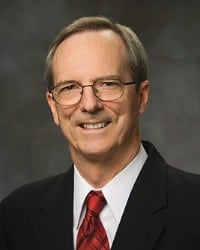
“The Atonement of Jesus Christ outweighs, surpasses, and transcends every other mortal event, every new discovery, and every acquisition of knowledge, for without the Atonement all else in life is meaningless.”
| The Infinite Atonement
LDS Quotes on Atonement

“The Atonement of Jesus Christ outweighs, surpasses, and transcends every other mortal event, every new discovery, and every acquisition of knowledge, for without the Atonement all else in life is meaningless.”
| The Infinite Atonement
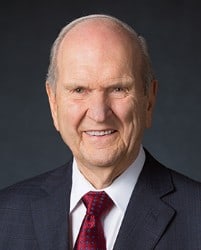
“This unique mortal mission of the Lord—the gospel as He defined it—we know as the Atonement. The fulness of the gospel, therefore, connotes a fuller comprehension of the Atonement. This we do not obtain from the Bible alone. The word atonement, in any of its forms, is mentioned only once in the King James Version of the New Testament. In the Book of Mormon, it appears 39 times! The Book of Mormon also contains more references to the Resurrection than does the Bible.”
| "A Testimony of the Book of Mormon," Conference October 1999

“Each of us is more than the worst thing we’ve ever done.”
| Just Mercy: A Story of Justice and Redemption
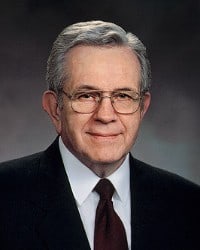
| Ensign, May 1997, p. 10
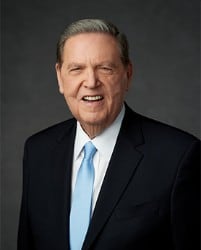
“The Lord has probably spoken enough comforting words to supply the whole universe, and yet all we see around us are unhappy Latter-day Saints, worried Latter-day Saints, and gloomy Latter-day Saints into whose troubled hearts not one of these innumerable consoling words seems to be allowed to enter . . . on the night of Gethsemane, the night of the greatest suffering ever to take place on this world, the Savior said, “Peace I leave with you, my peace I give unto you . . . let not your heart be troubled, neither let it be afraid” (John 14:27). I submit to you, that may be one of the Savior’s commandments that is, even in the hearts of otherwise faithful Latter-Day Saints, almost universally disobeyed.”
| CES Young Adult Fireside, BYU, March 2, 1997

The miracle of the Atonement is not just that we can go home but that—miraculously—we can feel at home there. If Heavenly Father and His Son did not require faith and repentance, then there would be no desire to change.
Think of your friends and family members who have chosen to live without faith and without repentance. They don’t want to change. They are not trying to abandon sin and become comfortable with God. Rather, they are trying to abandon God and become comfortable with sin.
If the Father and the Son did not require covenants and bestow the gift of the Holy Ghost, then there would be no way to change. We would be left forever with only willpower, with no access to His power. If Heavenly Father and His Son did not require endurance to the end, then there would be no internalization of those changes over time. They would forever be surface and cosmetic rather than sinking inside us and becoming part of us—part of who we are. Put simply, if Jesus didn’t require practice, then we would never become Saints.
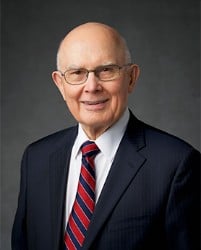
“We are frequently asked, “How do you persuade your young people and your older members to leave their schooling or their retirement to sacrifice in this way?” I have heard many give this explanation: “Knowing what my Savior did for me—His grace in suffering for my sins and in overcoming death so I can live again—I feel privileged to make the small sacrifice I am asked to make in His service. I want to share the understanding He has given me.” How do we persuade such followers of Christ to serve? As a prophet explained, “We [just] ask them.”
| "Sacrifice"

“First of all, if in the days ahead you not only see limitations in those around you but also find elements in your own life that don’t yet measure up to the messages you have heard this weekend, please don’t be cast down in spirit and don’t give up. The gospel, the Church, and these wonderful semiannual gatherings are intended to give hope and inspiration. They are not intended to discourage you. Only the adversary, the enemy of us all, would try to convince us that the ideals outlined in general conference are depressing and unrealistic, that people don’t really improve, that no one really progresses. And why does Lucifer give that speech? Because he knows he can’t improve, he can’t progress, that worlds without end he will never have a bright tomorrow. He is a miserable man bound by eternal limitations, and he wants you to be miserable too. Well, don’t fall for that. With the gift of the Atonement of Jesus Christ and the strength of heaven to help us, we can improve, and the great thing about the gospel is we get credit for trying, even if we don’t always succeed.”
| “Tomorrow the Lord Will Do Wonders among You”
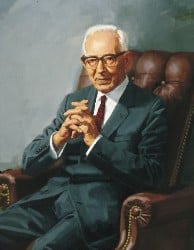
“Every child that comes into this world is carried in water, is born of water, and of blood, and of the spirit. So when we are born into the kingdom of God, we must be born the same way. By baptism, we are born of water. Through the shedding of the blood of Christ, we are cleansed and sanctified; and we are justified, through the Spirit of God, for baptism is not complete without the baptism of the Holy Ghost. You see the parallel between birth into the world and birth into the kingdom of God.”
| Doctrines of Salvation
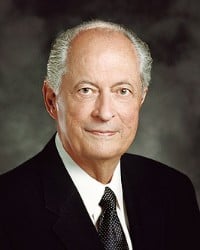
Before that sacred night in Bethlehem, the events of history and the words of the prophets of all dispensations prepared the way for the first coming of the Lord and His Atonement. Similarly, history and prophecy laid the groundwork for the Restoration of the gospel through the Prophet Joseph Smith. Do we have eyes to see that the events and prophecies of our time are preparing us for the Savior’s Second Coming?
| “Preparations for the Restoration and the Second Coming: ‘My Hand Shall Be over Thee,'” Ensign, November 2005, p. 92